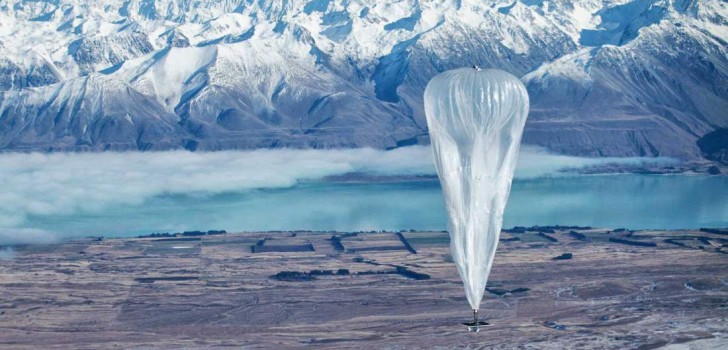Sri Lanka will become the first country in the world to have full broadband coverage provided by floating telecom towers following an agreement between the country’s Government and Google.
The coverage will be provided by Google Loon high altitude balloons.
The announcement is particularly interesting for being both the first commercial deployment of the crazy-sounding project and also for being the first rival to Facebook’s insideous Internet.org scheme, which seeks to address the same problem.
Google’s project, while requiring new technology to be developed, preserves net neutrality by offering the full internet rather than Facebook’s heavily filtered list of sites available through Internet.org
The deal was announced yesterday through Deputy Economic Policy Minister Harsha de Silva’s twitter feed which read “Hopefully in a few months every person and every device on the island will be covered by 3G (third generation).”
The country’s Telecom Minister Mangala Samaraweera confirmed the deal and said the Google Loon balloons would provide the 3G service from the country’s northernmost villages to those in the country’s southernmost points.
“Sri Lanka is on its way to becoming the very first country in the world to have network connectivity cover the entire country. Allow me to conclude by saying that I am proud to declare that we are at the cusp of a reclaiming our heritage of being connected to each other and connected to the world. In a few months we will truly be able to say: Sri Lanka. Covered.”
Cassidy and Sri Lanka’s Prime Minister Ranil Wickeremsinghe’s signed off on the contract in Colombo, the country’s capital.
According to Sri Lanka’s Deputy Investment Promotions Minister Eran Wickremeratne, each of the Google Loon balloons would provide 3G coverage for approximately 2000 square miles with a dozen balloons expected to be enough to cover all of the Island country. The balloons have standard LTE transceivers which can connect to cell phone networks which would fill gaps not provided by the network of balloons.
“Service providers will enter in to agreements with ‘floating cell towers’ that will be shared bringing down transmission costs leading to further reductions in cost of service provision,” said de Silva.
“All in all I feel today’s agreement will certainly provide a huge boost to our game plan to create a knowledge based highly competitive social market economy that will help every household achieve their own dreams.” he said.
Sri Lanka’s mobile and fixed phones now exceed the population which till the mid 90’s had to wait 15 to 20 years to get a phone. Samaraweera was responsible for changes to the communication’s backwater when he opened up the Government’s telecom monopoly by inviting private companies to set up mobile networks.
Stay Connected